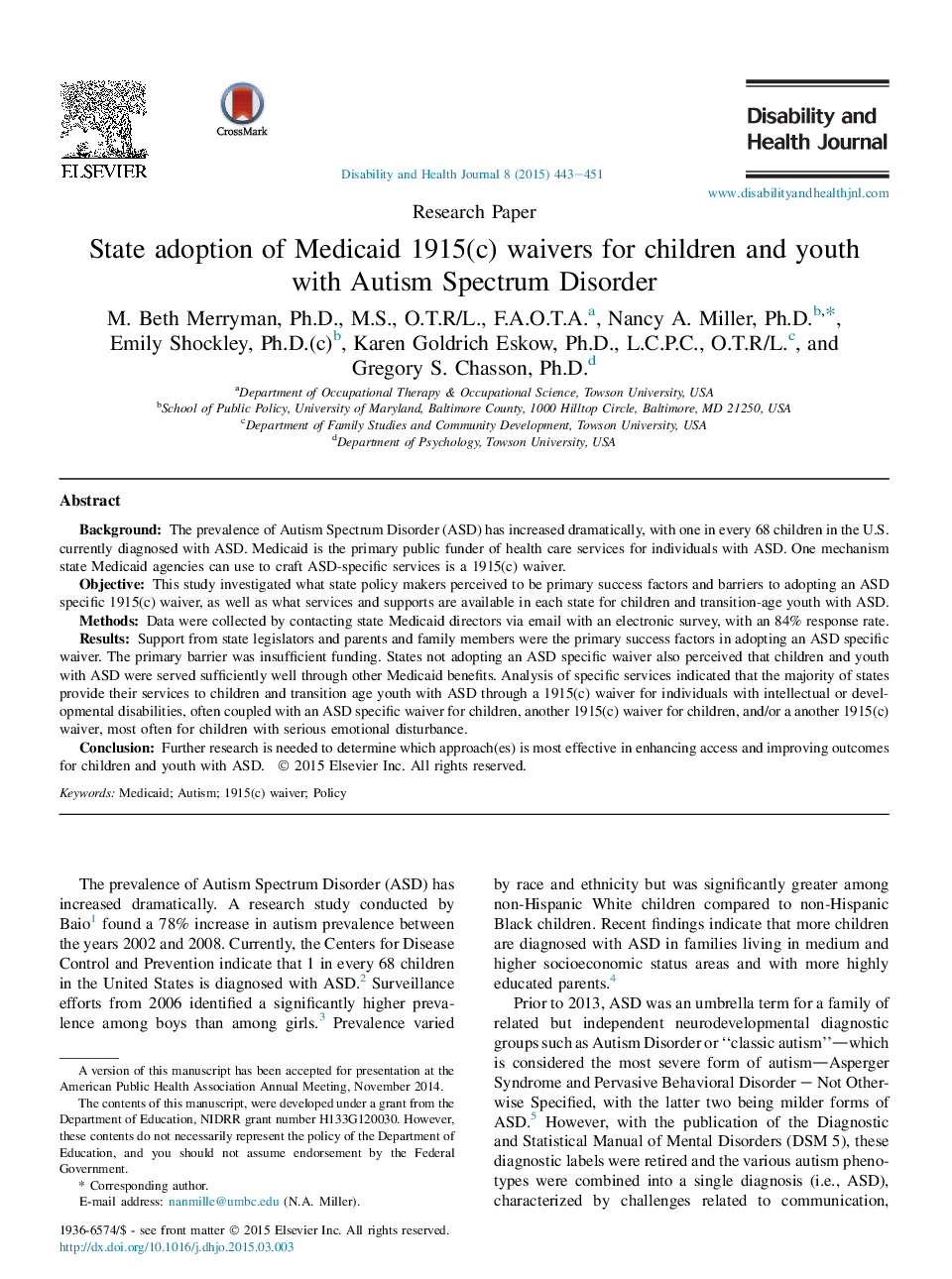| Article ID | Journal | Published Year | Pages | File Type |
|---|---|---|---|---|
| 6238684 | Disability and Health Journal | 2015 | 9 Pages |
BackgroundThe prevalence of Autism Spectrum Disorder (ASD) has increased dramatically, with one in every 68 children in the U.S. currently diagnosed with ASD. Medicaid is the primary public funder of health care services for individuals with ASD. One mechanism state Medicaid agencies can use to craft ASD-specific services is a 1915(c) waiver.ObjectiveThis study investigated what state policy makers perceived to be primary success factors and barriers to adopting an ASD specific 1915(c) waiver, as well as what services and supports are available in each state for children and transition-age youth with ASD.MethodsData were collected by contacting state Medicaid directors via email with an electronic survey, with an 84% response rate.ResultsSupport from state legislators and parents and family members were the primary success factors in adopting an ASD specific waiver. The primary barrier was insufficient funding. States not adopting an ASD specific waiver also perceived that children and youth with ASD were served sufficiently well through other Medicaid benefits. Analysis of specific services indicated that the majority of states provide their services to children and transition age youth with ASD through a 1915(c) waiver for individuals with intellectual or developmental disabilities, often coupled with an ASD specific waiver for children, another 1915(c) waiver for children, and/or a another 1915(c) waiver, most often for children with serious emotional disturbance.ConclusionFurther research is needed to determine which approach(es) is most effective in enhancing access and improving outcomes for children and youth with ASD.
